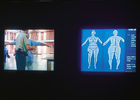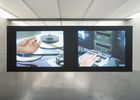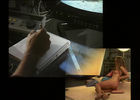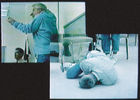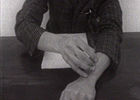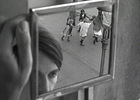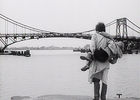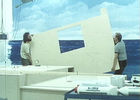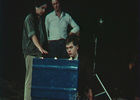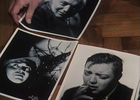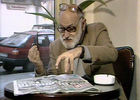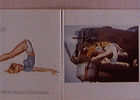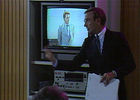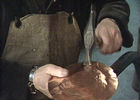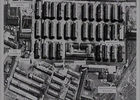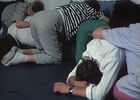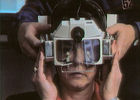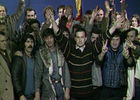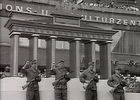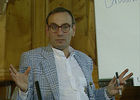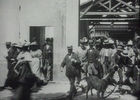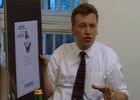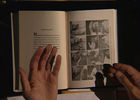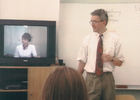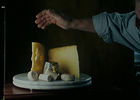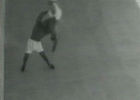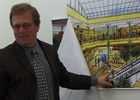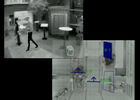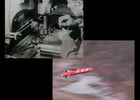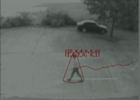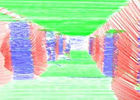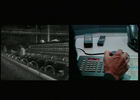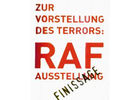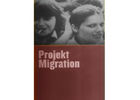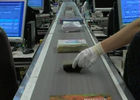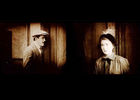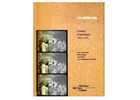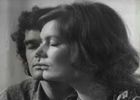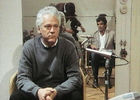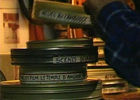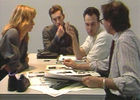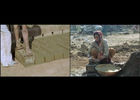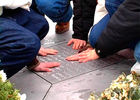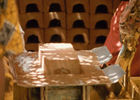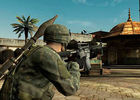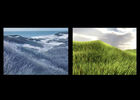Harun Farocki
Biographie
Harun Farocki was born in Novi Jicín in 1944 in what is today the Czech Republic. He studied at the German Cinematic and Television Academy (DFFB) in Berlin, from which he was expelled in 1968 for political reasons. In addition to writing theoretical texts, he has scripted numerous films and television productions. His work was shown at Documenta 12 in Kassel and in numerous international retrospectives and has received many awards. Since 2000 he teached at the German Cinematic and Television Academy (DFFB) Berlin. Since 2004 he was first guest professor, from 2006 to 2011 full professor at the Academy of Fine Arts Vienna. Harun Farocki passed away 2014 in Berlin.
Additional biography
Farocki’s early films are marked by ideas of a cultural revolution as formulated by the increasingly radical Left of the time and are explicitly developed as effective means of political propaganda. In this way, "Inextinguishable Fire" (1968/69) seizes upon the Vietnam War as one of the quintessential themes of the student movement. While his politically-motivated educational films subject the audience to an analytical and consciousness-raising agenda, the subsequent auctorial, essayistic, and documentary films call for a more active reception on behalf of the audience itself. Thus the documentaries consciously refrain from any interpretation of the events portrayed, while presenting quotidian life in a clearly visible form that reveals its hidden capitalistic logic. Parallel to this, cinematic essays arise, which question the very use of film as a pictorial medium. Through both montage and a deliberate composition of either intentionally filmed or found materials, Farocki produces a subtext, which opens up the technical, socio-political, and cultural contexts of meaning in the production, distribution, and reception of images. In works such as "Videograms of a Revolution" (1992), assembled entirely from found footage, Farocki manages to set up a completely new narrative order. In these works he thematizes the interactions of historic processes and their representation in the media. Since the end of the 1990s, Farocki has been increasingly involved in creating video works within an exhibition context, e. g., at the Documenta X, 1997. His latest installations are concerned with the instrumentalization of the camera as a tool of supervision and control: "I Thought I Was Seeing Convicts" (2001 produced by the Generali Foundation) makes visually apparent the transition from a disciplinarian society to one of social control with the use of video footage from a surveillance camera. Similarly, "Eye/Machine I" (2002) shows just how far the use of images for technical supervisory purposes in both the military and civilian sectors has already progressed. (Luisa Ziaja)
